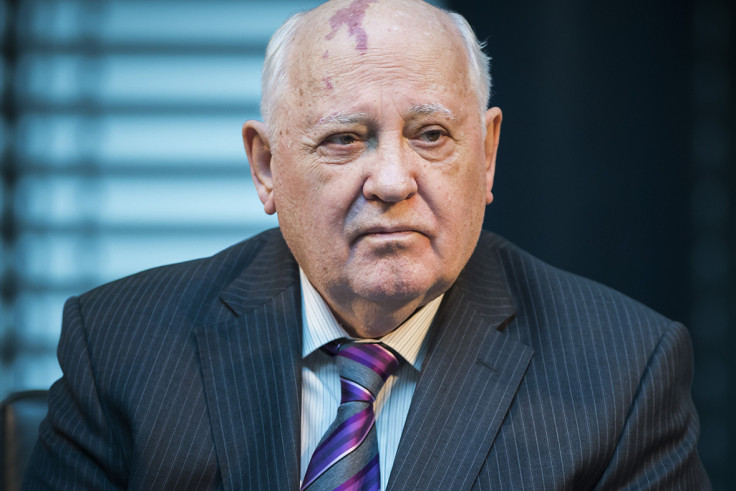Ex-Soviet leader Mikhail Gorbachev warns that countries are preparing for World War 3
'It all looks as if the world is preparing for war,' said the former Russian president.
Mikhail Gorbachev has warned that the world looks as if it is preparing for World War Three amid a new nuclear arms race.
The former Soviet leader ruled the Communist Party towards the end of the Cold War when Russia and the US were at constant threat of escalating tensions and engaging in a global war.
But Gorbachev and former US President Ronald Reagan engaged diplomatically and agreed the Intermediate-Range Nuclear Forces Treaty in 1987, which saw a significant reduction in nuclear arsenals – much to the world's relief.
Now, the 85-year-old Nobel Peace Prize winner has called on presidents Donald Trump and Vladimir Putin to do the same, as new tensions arise.
"While state budgets are struggling to fund people's essential social needs, military spending is growing," Gorbachev wrote in an opinion piece for Time magazine.
"Money is easily found for sophisticated weapons whose destructive power is comparable to that of the weapons of mass destruction; for submarines whose single salvo is capable of devastating half a continent; for missile defence systems that undermine strategic stability.
"Politicians and military leaders sound increasingly belligerent and defence doctrines more dangerous. Commentators and TV personalities are joining the bellicose chorus. It all looks as if the world is preparing for war."
Gorbachev's warning comes as both Russia on one side and Nato and the US on the other have considerably increased the presence of troops on Russia's eastern border.
Earlier this month, the British Army tested its capability to move tanks through the Channel Tunnel in the prospect of a military escalation in Europe.
Scientists at the Bulletin of Atomic Scientists have also this week moved the Doomsday Clock thirty seconds closer to midnight – the closest it has come midnight since 1953 at the height of the Cold War.
Gorbachev called on the United Nation Security Council to adopt a resolution to prevent further escalations.

He said: "There is a view that the dialogue should focus on fighting terrorism. This is indeed an important, urgent task. But, as a core of a normal relationship and eventually partnership, it is not enough.
"The focus should once again be on preventing war, phasing out the arms race, and reducing weapons arsenals. The goal should be to agree, not just on nuclear weapons levels and ceilings, but also on missile defence and strategic stability.
"In modern world, wars must be outlawed, because none of the global problems we are facing can be resolved by war – not poverty, nor the environment, migration, population growth, or shortages of resources."
© Copyright IBTimes 2025. All rights reserved.






















